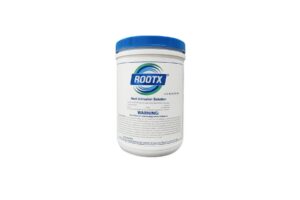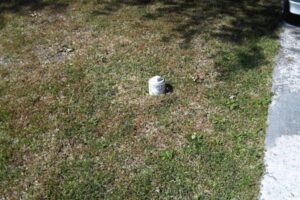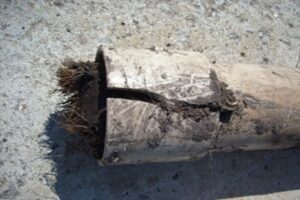Top 5 Causes of Water Leaks
ROOTER-MAN 24 HOUR SERVICE
Clogs in Drains and Toilets: Clogged plumbing from your toilet, sinks, showers and drainage pipes (i.e. from washing machines, etc.) are common in most households. Hair, food, grease, toilet paper, the occasional children’s toy, etc… are all culprits at one time or another, but the result is usually the same.
Sinks, fixtures, toilets and appliances will show signs of slower drainage, and eventually, they will begin to leak or overflow causing serious problems. Unclogging pipes and drains can be a tricky job, but with some proper know how or the help of a professional, you should be able to fix these types of leaks before major damage is done.
Deterioration/Shifting of Pipes: This cause of leaking can be much harder to detect. After so many years of use, pipes naturally begin to rust and deteriorate, eventually leading to cracks and crevices that release various amounts of water. Also, natural shifting of your house frame or foundation can cause the joints in your plumbing to loosen or separate, which causes water leaks.
Sometimes it’s only a drop or two per minute, other times it’s a steady stream of water that leaks. All of this water has to go somewhere and can cause a damages if the leak is not detected and repaired in a timely manner.
Condensation/Overflowing of Drainage Pans: Many of your heating, ventilation and air conditioning (HVAC) units have drainage pans and other systems for dealing with condensation and waste water. These things often require manual draining and can overflow if unattended for long periods of time. Be sure to check them often, especially during the hot months when ACs produce a great deal of condensation.
Rusting and Sediment in Water Heaters: The plumbing going into and coming out of a water heater is also a common point of water leaks. These leaks are often caused by rusting, deterioration and sediment build up inside of older tanks. Most hot water heaters will have many valves and filters that in can get “clogged” or blocked up from this sediment, which in turn, leads to water leaks.
External Leaks/Roots in Plumbing: This is sort of the reverse scenario for leaks, as it will happen outside of your home – but it’s a leak all the same, and can cost you a lot of money in water bills and repairs. What happens is that the plumbing and sewage pipes coming out of your home deteriorate over time, springing small leaks of vapor, which attracts roots to grow towards them.





